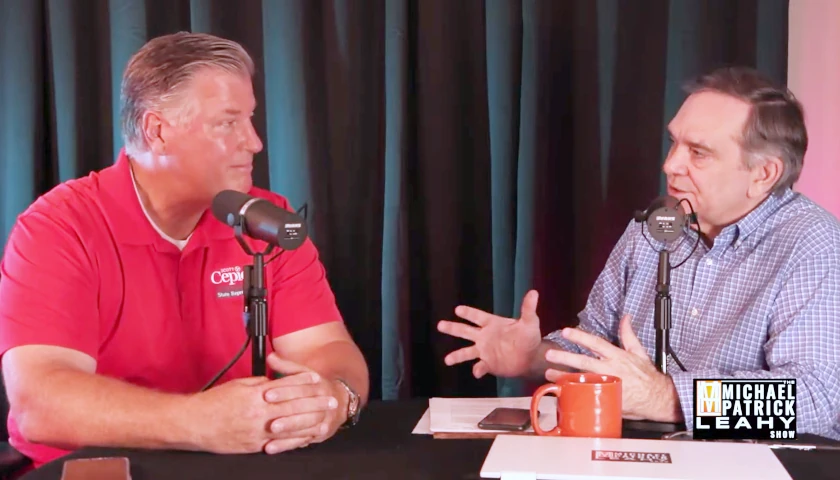Tennessee State Representative Scott Cepicky (R-Culleoka) said the Tennessee House version of the universal school choice bill that failed to pass the General Assembly earlier this year is “eerily similar” to the Wisconsin school choice bill that passed the state’s legislature nearly 14 years ago.
Cepicky said he recently traveled to Wisconsin to meet with state legislators and study the legislation the Badger State passed to reform its public education system, which made the state go from one of the worst in the nation to one of the best in terms of education.
“Knowing the things that we’re doing in education reform and then studying what Wisconsin’s done, a lot of the things we’re doing are eerily similar. If you look at the House version, we had things on school choice that would open it up statewide but had some growth parameters in it to make sure it didn’t get financially out of hand. It did exclude the homeschoolers, which they wanted, and put some buffers in there with private schools to protect them and their integrity. The one thing they also did was what we were trying to do which was to do some major transformational reform in public education. Less testing, less evaluations, more teaching time,” Cepicky explained on Friday’s edition of The Michael Patrick Leahy Show.
“When [Wisconsin] instituted the school choice and this transformational change in public education, they were 38th and languishing like we are. Then, they reached a plateau and just got stuck. When they opened it up to school choice and they did the transformational reforms in public education, in five years they were in the top ten in the country,” Cepicky added.
Cepicky explained the specific similarities the Tennessee House’s version of Governor Bill Lee’s school choice bill had compared to Wisconsin’s program.
“The bill that we were running in the General Assembly this year was eerily similar to what they ran 14 years ago – Invoking school choice, putting some parameters on growth on it, making sure homeschoolers weren’t included, putting the parameters on private schools to protect them, but the transformational changes that they made in public education changed the whole deal for them,” Cepicky said.
One of the concerns during the most recent legislative session of the Tennessee General Assembly regarding a school choice plan was the different approaches both legislative chambers took to the bill.
While the Senate introduced a cut-and-dried version of the governor’s plan, the House version included additional incentives unrelated to the governor’s school choice plan, including public education reform.
Cepicky acknowledged the importance of including public education reform measures along with a universal school choice program. However, he said that such reforms would likely be introduced in a separate bill from the governor’s school choice proposal.
“I think what you’ll see is an agreement going in there about the language. Now, I would probably be willing to bet you that a lot of the public school reforms we wanted to do will be run in a separate bill,” Cepicky said.
“Let’s be clear here. The problem with the public educational system is the system that we’ve created. It’s tying the hands of teachers. It’s tying the hands of students. We’ve got to get more freedom and autonomy into these classrooms to bring the innovative and creativity back into them. I think that’s what our intention is going to be, which is not to get rid of public schools – which is what we’ve been accused of doing – but to accentuate it to where now, the dynamics that happen in homeschool, dynamics that happen in private school, now public school can take advantage of those dynamics and really start to get the educational system we want,” Cepicky added.
Watch the full interview:
– – –
Kaitlin Housler is a reporter at The Tennessee Star and The Star News Network. Follow Kaitlin on X / Twitter.




